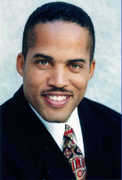In 1996, the Los Angeles Times published an article I wrote lamenting the dearth of minorities, particularly African-Americans, in the entertainment industry. This was obviously pre-Forest Whittaker’s winning portrayal of Edi Amin in "The Last King of Scotland". It was a decade before Halle Berry’s historic nod, or Jennifer Hudson’s mush deserved Oscar for her supreme, show-stopping performance in "Dreamgirls".
It was two lifetimes before rap artists 3-6-Mafia made pimpin’ a little easier.
Of the 166 Academy Award nominees that year, only one was African American. Sure, Whoopi Goldberg presided over the festivities, with Qunicy Jones serving as co-producer. The disturbing message sent in 1996, however, was as clear as the images of separate water fountains, fire hoses, police attack dogs, or treating segments of society as if they were invisible. The message was: Whites only.
What a difference a decade can make!
This years 79th Annual awards show was the most globally diverse in the history of the Academy. The organization currently comprises over 6,000 motion picture professionals. Although the vast majority of its members reside in America, the 2004 roster included theatrical filmmakers from 36 countries.
Sunday’s international broadcast showcased 20 outstanding nominees in the acting categories. Of them, five were of African descent. Overall, blacks fared well, receiving a total of eight nominations and three wins. Latino filmmakers brought their A-game as well, garnering 16 nominations and four wins, three for Guillermo Del Toro’s "Pan’s Labyrinth" and one for Gustavo Santaolalla in the best music score category for "Babel." With an acting nomination for a descendant of Japan and a best short documentary win for Chinese director Ruby Yang, Asians did not go home empty-handed either.
But my favorite part of the ceremony – aside from director Michael Mann’s film montage showcasing diversity in cinema and Whitaker’s touching acceptance speech – came in the opening monologue. That’s when quirky host Ellen DeGeneres stated, "If there were no blacks, Jews, or gays, there would be no Oscars."
Of course she was being sarcastic – the part about blacks, that is.
Each year studies are done, statistics are collected, commitments are made and, ultimately, promises are broken. A decade ago, fewer than 150 – or 3.9 percent – of the then 5,043 Academy members who nominate and choose Oscar winners were black. Only 2.3 percent of the Directors Guild membership was black. A mere 2.6 percent of the Writers Guild was African-American. Blacks accounted for less than 2 percent of the 4000-member union of set decorators and property masters. For other minorities, the numbers were equally disgraceful.
In 2007, those stats really haven’t budged much despite the fact that in the U.S alone, African-Americans make up 25 – 30 percent of the movie going audience. With the civil rights movement officially over, the push for what my friend John Bryant has coined the silver rights movement is now taking center stage.
You would think liberal Hollywood would have recognized by now that mining for greater minority participation in front of and behind the camera could dramatically increase its bottom line. A highly sought-after export, entertainment is a commodity yielding solid returns. The bottom line, however, is that many in the industry – consciously or otherwise – continue to arrogantly shun the gifts minorities have to offer. In a self-regulated industry, the result is less potential revenue, fewer jobs, fan stagnation, and more international trepidation about the United States and all that we allegedly stand for.
So while we revel in the splendor of Oscar, we know why everyone is still not invited to the Governor’s Ball of Vanity Fair’s soiree. And the reason has to do with basic tenets of equality. Actor Edward James Olmos’ assertion that, "All of the Oscar-nominated pictures put together give lots of hope to diversity in general, and world cinema in particular," means nothing unless moviemakers come out of preproduction and get the cameras rolling in Africa, Latin America, China and "other parts" of America.
If it’s true that Hollywood is a place where money doesn’t talk but screams, add my voice to the choir on set shouting at the top of its lungs, "ACTION!"
For me, it always speaks louder than words.
(Portions of this article were reprinted from the Los Angeles Daily News.)
Former Los Angeles Superior Court Judge Kevin Ross is a past president of the Organization of Black Screenwriters.

